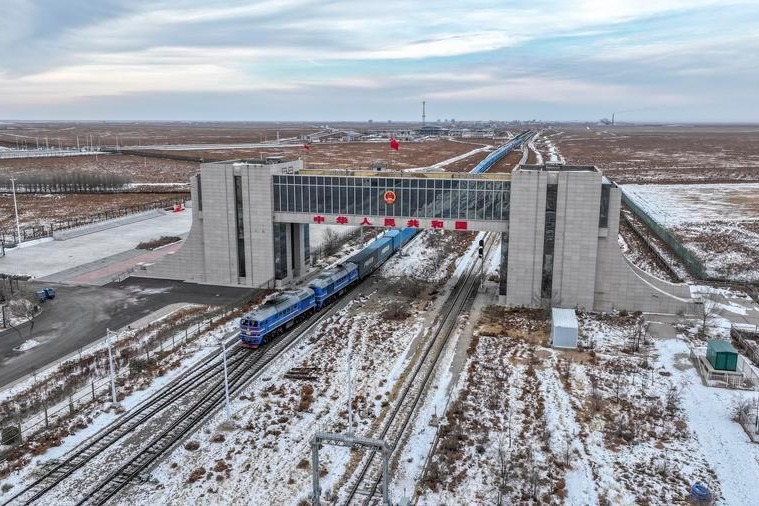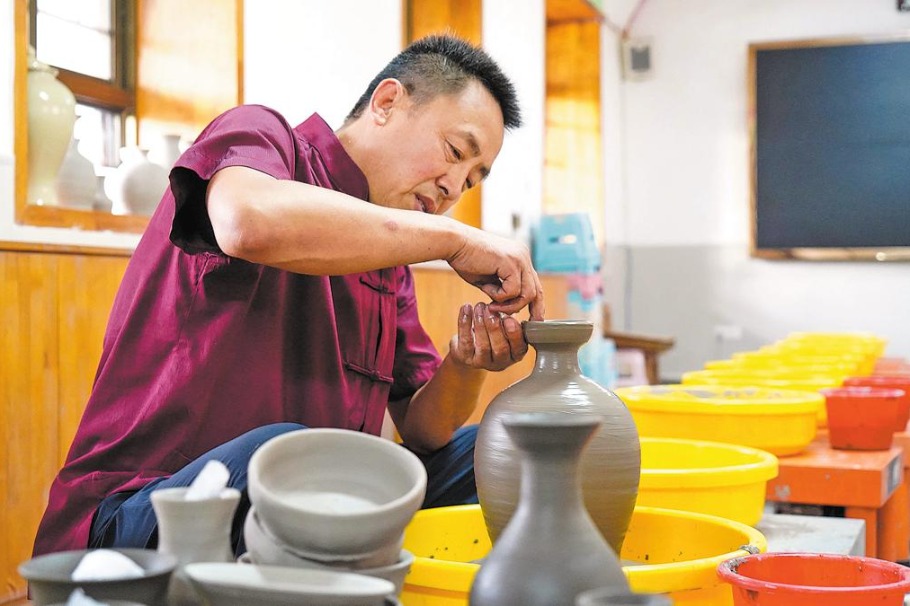Recruiters seek overseas graduates
Stakeholders ramp up efforts to help returnees adapt to domestic job market

Employers are actively seeking international talent to fill critical roles, particularly in high-tech, biopharmaceuticals and other innovation-driven industries, as more Chinese overseas graduates return to the evolving domestic job market.
However, challenges such as mismatched expectations for pay, information gaps and recruitment barriers persist, according to the latest reports and employment portal insiders.
The Chinese government, international organizations and education consultancies have ramped up efforts to attract more overseas graduates to return for employment and entrepreneurship while bridging the gap between supply and demand in the job market.
The 2024 Chinese Overseas Graduates Employment Report, released by LinkedIn China, shows that demand for international talent in industrial manufacturing, biopharmaceuticals and new energy has surged by 300 percent over the past 18 months among China's top 2,000 globally active companies. Top employment sectors for returnees include high-tech, financial services, consulting and biotechnology.
LinkedIn China Country Manager Nancy Wang told China Daily that 83 percent of Chinese companies have recruitment needs for overseas graduates, prioritizing technical innovation and global perspectives when hiring returnees. The demand for highly skilled professionals is strongest in research and development, technology and management roles, Wang said.
Nearly half the companies recruiting international talent target R&D positions, aligning with overseas graduates' preference for technical roles. Emerging fields such as artificial intelligence, biomedicine and new materials show a balance between employer demand and graduate expertise, she added.
Wang Wen, founder and CEO of SKYE MED, a biotechnology company focusing on innovative drugs, said the company particularly values language proficiency, diversity and the global perspective of employees with overseas education backgrounds, who account for one-eighth of the team.
"Language skills are critical, especially in industries like biotechnology, where staying on top of international developments and engaging in global collaboration is vital," Wang Wen said.
Meanwhile, a diverse workforce fosters creativity and innovation, he noted.
"Overseas graduates bring unique perspectives that complement local employees and help teams generate more inventive solutions," he said.
Returnees' familiarity with the latest international trends and their networks with industry leaders are valuable for companies seeking to stay competitive globally. Recent high-profile partnerships in the industry, such as China-based LaNova Medicines' $800 million collaboration with leading biopharmaceutical company Merck, highlight the demand for globally savvy talent capable of driving international deals.
However, the landscape for returnees has shifted, said Wang Wen, who earned a doctorate from the University of Aberdeen in Scotland in 2012.
"Domestic employers now prioritize the cultivation of abilities during academic pursuits over mere academic credentials. They no longer solely rely on degrees for assessment, recognizing that academic qualifications and competencies are equally important," he said.
Challenges, solutions
The mismatch between employers' expectations and returnees'skills remains a key issue. Nancy Wang from LinkedIn noted that mismatches persist in functional areas like marketing and sales, as overseas graduates tend to prefer management and data analysis positions.
Additionally, over half of returnees lack insights into domestic employment trends. The information gap is particularly acute among returnees with doctorates, some of whom are concerned about national policies affecting their job prospects, she added.
Though about 70 percent of overseas graduates secure employment within three months of their return, some have expressed difficulties getting work. According to the 2024 Employment Competitiveness Survey Report for Overseas Returnees, jointly released by consultancy EIC Education and recruitment portal 51Job, 23.4 percent of respondents said it is "very hard" to find a job, while 45.6 percent regarded it as "a little challenging".
The top two obstacles identified were high salary expectations and maladaptation to domestic workplace culture and pace, said EIC Vice-President Lee Zhang. Some graduates struggle to meet the demands of highly specialized industries, while others overestimate the value of their degrees, failing to adapt to the evolving domestic job market, according to the survey.
To address these challenges, Zhang said the central government and multiple cities have issued preferential policies to support returnees in employment and entrepreneurship.
In early December, the Ministry of Human Resources and Social Security, along with nine other ministries and departments, issued opinions on further improving services for overseas students returning to China, aiming to attract more talent for work, entrepreneurship and national service.
Key measures outlined include integrating returnees into the national employment policy framework to promote high-quality and sufficient employment. The policies also support entrepreneurship, encourage diverse forms of service to the country, and strengthen infrastructure such as innovation parks and postdoctoral research stations.
Additionally, the guideline calls for streamlining degree and qualification recognition processes, facilitating border entry and exit services, and improving personnel management and social insurance benefits for returnees.
Cities such as Shanghai, Guangzhou in Guangdong province and Nanjing in Jiangsu province have gradually lifted household registration requirements for overseas graduates. Municipal governments, including Hangzhou in Zhejiang province, offer each returnee an annual rental subsidy of 10,000 yuan ($1,370) for the first three years, while Beijing provides qualified overseas graduates with 100,000 yuan each to start a business, Zhang said.
Importance of job fairs
Meanwhile, recruitment fairs and events are being organized to help overseas returnees better adapt to the domestic job market.
Leina Shi, director of education at the British Council in China, said annual recruitment fairs in major Chinese cities exclusively for United Kingdom graduates provide direct access to top employers and current market trends. These fairs also offer opportunities for the graduates to showcase their skills and connect with hiring managers.
The Study UK Career Development Roadshow, held each March, partners with UK universities, Chinese companies and human resources experts, she said. Overseas Chinese students are provided with insights into China's job market, industry development trends and employer expectations through keynote speeches and panel discussions.
zhaoyimeng@chinadaily.com.cn
- Ultra-cheap dress blind boxes spark health, quality concerns
- Chinese researchers find new treatment path for high-risk breast cancer
- China cracks down on organized crime involving minors
- Two Taiwan suspects wanted in mainland smuggling case
- Lhasa promotes initiative to foster a skilled workforce
- Beijing makes it easier for families to buy property




































